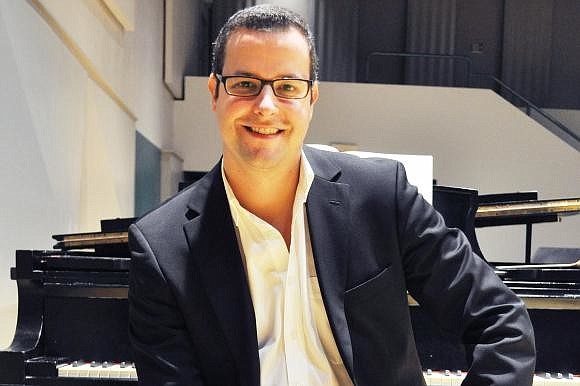- April 26, 2024
-
-
Loading

Loading

We’ve seen this before. What looks good, interesting, possibly even revolutionary on paper, goes very wrong in real life. This is, unfortunately, what happened at the Sarasota Orchestra’s most recent foray into its Innovations Series when “Revolutions,” a program at the Opera House featuring a multi-media presentation with the Orchestra, two speakers (Joe Reed as Albert Einstein, and the Reverend Charles McKenzie as Dr. Martin Luther King, Jr.), Miri Ben-Ari (a hip-hop violinist) and conductor Dirk Meyer, all went awry.
If you read this column regularly, you know I am a proponent of mixing things up at traditional concerts. But you also know I always push for reason. If videos are used with the music, they must enhance the music, not detract. If a so-called “pop” artist is the featured soloist, that person must be super talented in both classical and pop fields, proving that great music is great when performed with taste and ability. If a script is written, purportedly to hold the program together, it must be written with intelligence, wit and intellectual flair. And if someone reads from that script, he or she had better be a reader so good you forget the script is being read.
So, back to the unfortunate nature of Saturday night’s performance. It had none of these much needed characteristics and, as a result, had little character.
Ben-Ari, who played on an over-amplified violin, was the biggest misfit of the evening. Her original compositions were superficial, repetitive and simplistic, all sounding the same except her take on the holocaust, “Never Forget,” which slipped into a minor key and sounded like a page from “Schindler’s List” that didn’t make the film’s final cut. Hip hop is not exactly my specialty but whatever it is she writes is an insult to good music and, from the way she played, it was almost impossible to tell why Isaac Stern took an interest in her. (And mispronouncing the conductor’s last name brought forth gasps from both audience and musicians.)
The program, itself, was a good idea on that piece of paper, but just didn’t carry over the print. If the organizing glue was supposed to be a revolutionary theme, placing Beethoven’s “Eroica” Symphony on a program with Uruguayan composer Miguel Aguila’s “The Giant Guitar,” Stravinsky’s “The Rite of Spring” and Ravel’s “La Valse” was more like a small battle. Still, it might have worked better if Stephen Schlow, the writer and stage director, hadn’t dumbed down an already dumb concept. His script for Reed, in the ill-conceived form of Einstein, was peppered with lame jokes and an almost grammar school approach to music and history that would have made Leonard Bernstein cringe.
Meyer’s conducting of the four real pieces of music, while clear and forthright, was somewhat uninspired. The Beethoven felt rushed, without the breathing room it needs to be the heroic piece it is, while both the Stravinsky and Ravel were, at times, played slackly by the musicians, with more attention paid by Meyer to the notes than the music-making. Aguila’s piece — an interesting mix of percussive rhythms and pizzicato strings — was well presented but certainly not revolutionary in any way.
Then there were the slides and light show — yes, light show — that accompanied the music and readings. Many of the slides were ill advised and embarrassing (think “E=mc^2” that sat on the screen above Einstein’s head as he began speaking), while many others were either illegible or indecipherable. And the swirling lights on stage and around the sides of the Opera House were unnecessary and distracting while the colors, in many cases, seemed randomly chosen. It was like being part of a surreal elementary school disco with Beethoven in the background.
Was there anything good about the evening? Well, yes. The program and appearance of Ben-Ari brought in a new audience (that may or may not return) but at least was there, packing the house. Reverend McKenzie’s reading of the “I Have a Dream” speech was passionate, touching and resonant (until Ben-Ari’s over-amplified violin drowned him out). The Sarasota Orchestra proved it is open minded and willing to try new concepts. (You can’t move ahead without making a few mistakes now and then.) The program proved how important a new music director will be for future planning and programming. And, without an intermission, the evening was blessedly short.